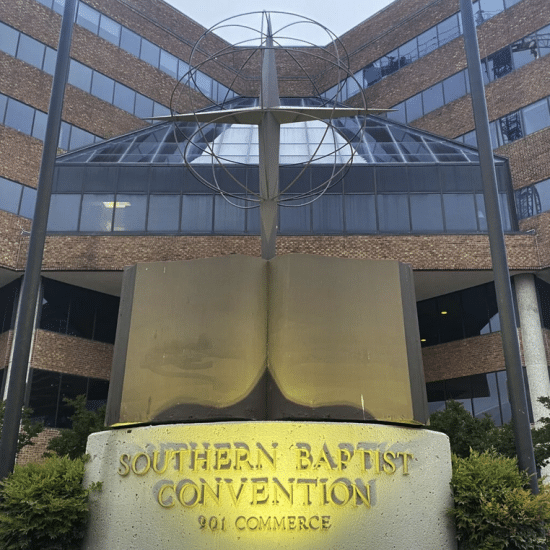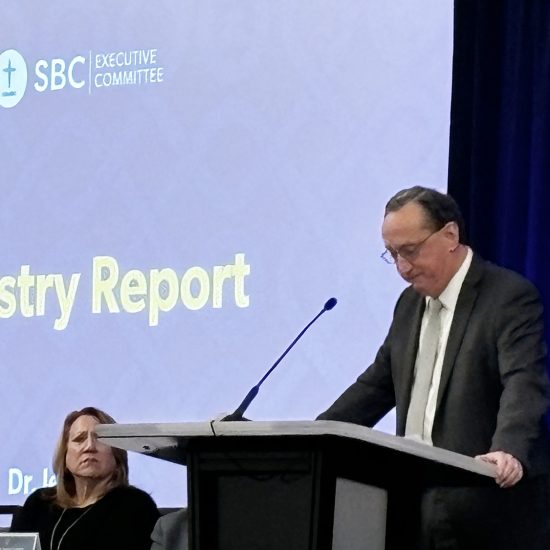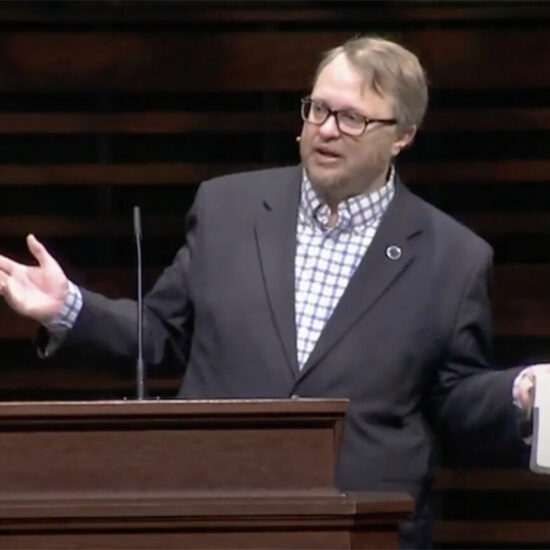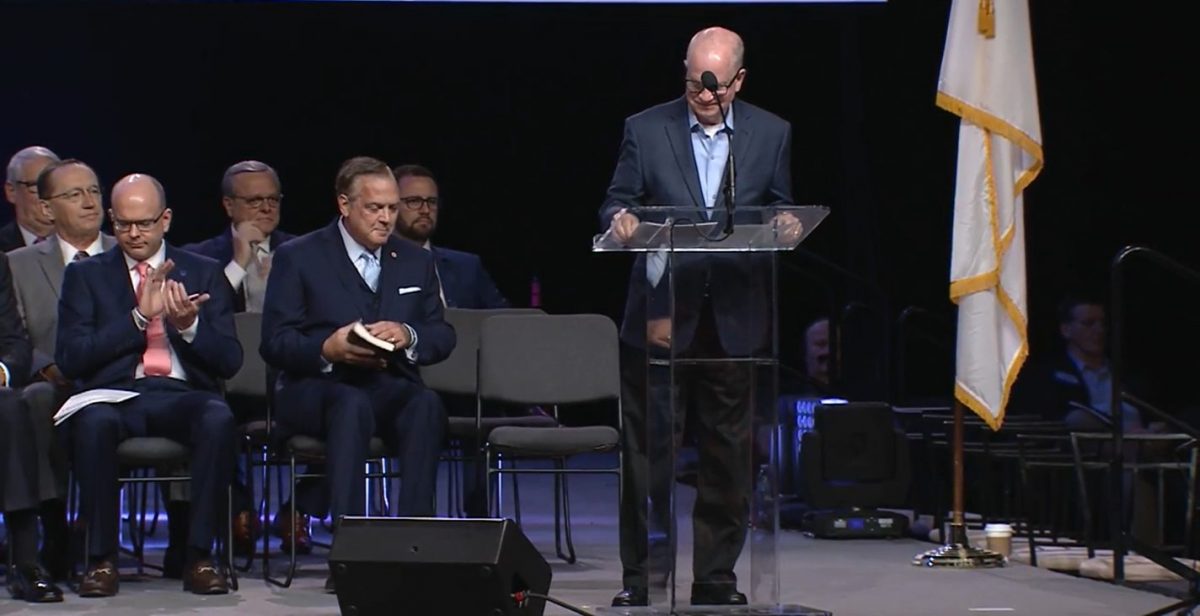
All six presidents of Southern Baptist Convention seminaries signed a joint statement released Monday (Nov. 30) denouncing Critical Race Theory. The statement purports to add to the SBC’s confessional document, adding yet another doctrinal layer for affirmation at the schools.
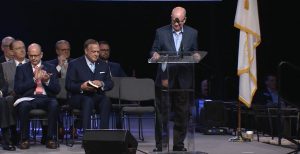
Screengrab from the 2019 Southern Baptist Convention annual meeting as Danny Akin speaks while other seminary presidents and leaders watch, including Jeff Iorg, Adam Greenway, Al Mohler, and Jamie Dew.
“We stand together on historic Southern Baptist condemnations of racism in any form and we also declare that affirmation of Critical Race Theory, Intersectionality, and any version of Critical Theory is incompatible with the Baptist Faith & Message,” the statement by the seminary presidents declares.
CRT is a decades-old broad social science perspective analyzing issues of race, power, and society. It particularly explores the role White Supremacy inherently plays in American society, and it urges efforts to deconstruct institutional racism. This approach demythologizes American history to note the impact of slavery and other racial injustices embedded in legal, political, and even religious structures.
Since CRT challenges dominant institutions that profited from racial oppression, some in the SBC see it as an inherent critique of the denomination’s privileged status. The largest Protestant denomination in the U.S., the SBC was founded to support slavery, and its institutions benefited from the wealth of enslavers. Additionally, Southern Baptist leaders provided theological justification for slavery, the Confederacy, Jim Crow, and segregation.
Al Mohler, president of Southern Baptist Theological Seminary in Louisville, Kentucky, said about the joint statement that since he finds CRT “incompatible” with the BF&M 2000, “such advocacy has no rightful place within an SBC seminary.” While Mohler led SBTS to acknowledge its legacy of slavery, he rejected calls for biblical reparations and calls to remove honors on campus to enslavers since he insists SBTS’s enslaver founders were biblically “orthodox.”
Mohler also calls CRT “secular,” while Danny Akin, president of Southeastern Baptist Theological Seminary in Wake Forest, North Carolina, referred to CRT as an “unbiblical ideology” and Jamie Dew, president of New Orleans Baptist Theological Seminary in Louisiana, called CRT a “modern secular ideology.” However, there are Christian scholars who affirm tenets of CRT as accurate and useful.
Since professors at the six schools must teach according to the BF&M 2000, the new statement appears to disqualify any professor from espousing CRT.
“All professors must agree to teach in accordance with and not contrary to the Baptist Faith & Message. This is our sacred commitment and privilege, and every individual faculty member and trustee of our institutions shares this commitment,” the seminary presidents wrote in their statement on CRT.
The presidents did not indicate if professors will be asked to explicitly affirm this reading of the BF&M 2000 that disallows Critical Race Theory. In recent years, some Southern Baptist seminaries and colleges have added additional statements for faculty to affirm.
For instance, professors at SEBTS must affirm the BF&M 2000, the Abstract of Principles, the 1978 Chicago Statement on Biblical Inerrancy, and the 1998 Danvers Statement on Biblical Manhood & Womanhood. New faculty at Midwestern Baptist Theological Seminary in Kansas City, Missouri, must sign the seminary’s Articles of Faith, and while doing so also publicly declare their affirmation of the BF&M 2000, the Chicago Statement, and the Danvers Statement. And religion professors at Southwest Baptist University in Bolivar, Missouri, must now affirm not only the BF&M 2000 but also the Chicago Statement, the Danvers Statement, and the 2017 Nashville Statement on sexuality.

